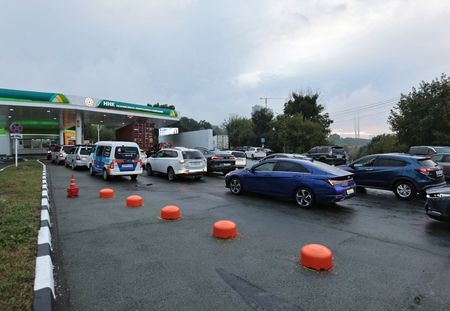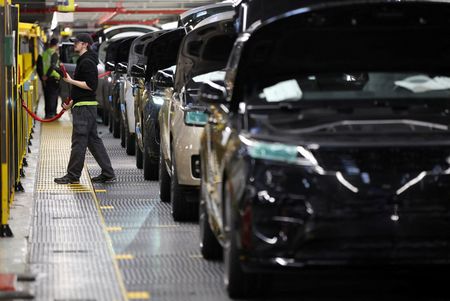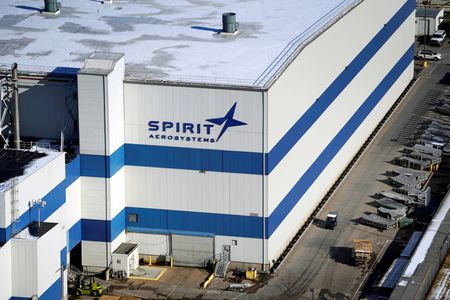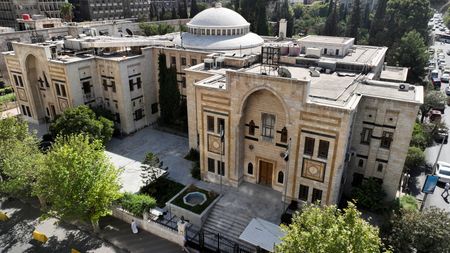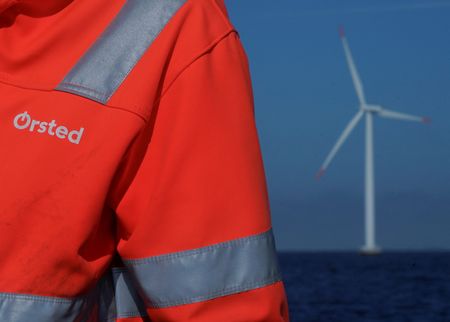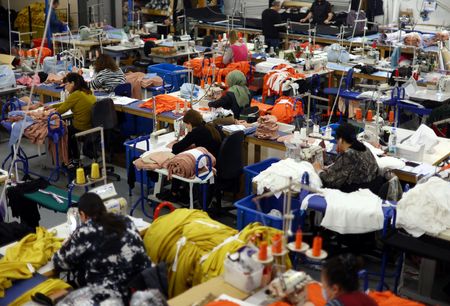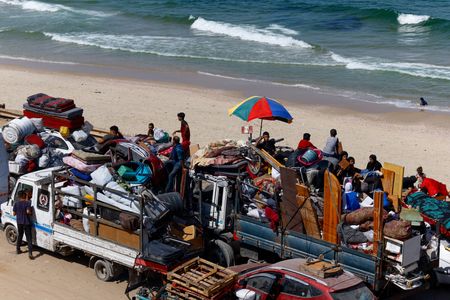MOSCOW (Reuters) -Russia is seeing shortages of certain fuel grades as Ukrainian drone attacks reduce refinery runs and high borrowing costs mean private filling stations can’t afford to stockpile fuel, according to traders and retailers.
Ukraine has stepped up drone attacks on Russian energy infrastructure in recent weeks targeting refineries and export terminals to reduce Moscow’s export revenues, stir domestic discontent and push the Kremlin to peace talks.
The attacks have reduced Russian oil refining by almost a fifth on certain days and cut exports from key ports, pushing Moscow close to reducing its oil production.
Russia has a big surplus of diesel but its gasoline production matches domestic demand, meaning the drop in refining runs could lead to shortages.
There are no large queues at the pumping stations, but certain grades of gasoline, such as popular Ai 92 and Ai 95, are frequently absent.
Russia’s Far East and Crimea were the first territories to experience a shortage of gasoline in August.
Similar problems have emerged in the Volga river region as well as in southern and central Russia, according to the sources. Reuters spoke to five traders and retailers in the Russian fuel market, who asked not to be named due to the sensitivity of the issue.
Gleb Nikitin, the governor of Volga’s Nizhni Novgorod region, said on the Telegram channel on Monday that “temporary” disruptions at the pumping stations are linked to chains of supplies in the wider region.
“Everything should return to normal in the coming days,” he said.
The sources said the problems were particularly acute for privately-owned fuel stations which are not part of vertically integrated oil firms, and which are not getting enough fuel due to refining cuts and struggling to stockpile gasoline due to high interest rates of 17%.
Filling stations owned by oil majors are still broadly operating as normal, the sources said.
The share of independent filling stations in Russia is around 40% by volume.
“The manager decided to temporarily close the gasoline station because there was no gasoline,” said an employee at a filling station in the western Belgorod region.
“The station in the neighbouring village also closed, and others simply ran out of gasoline,” she said.
The Russian economy has so far withstood a barrage of Western sanctions but is currently slowing down.
Bankruptcies and closures are on the rise in industries, such as the coal sector, and exports are dropping.
(Reporting by ReutersEditing by Alexandra Hudson)

